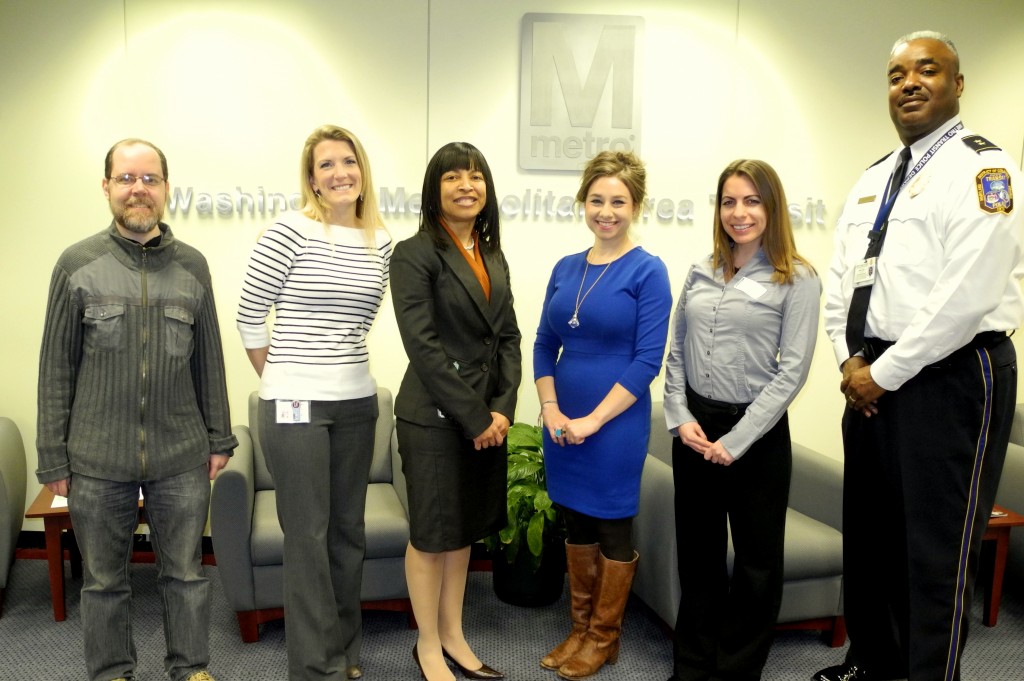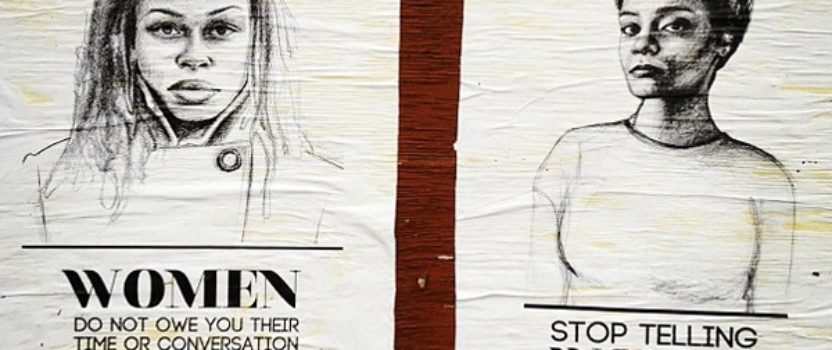CASS & Stop Street Harassment meet with WMATA on Global Day of Action for Safer Cities!
Reposted with permission from our friends at Stop Street Harassment.
CASS & Stop Street Harassment met with WMATA as part of the Huairou Commission‘s Global Day of Action (February 19, 2013), called “Delhi and Beyond: Concrete Actions for Safer Cities.” A total of 50 organizations participated in the Global Day of Action, which aimed to help grassroots women and women’s organizations to partner with government authorities and concretely build safer cities. The day was organized by the Huairou Commission, Women in Cities International, Women and Habitat Network Latin America, Jagori, GROOTS International, ICWIF and FEMUM-ALC.
The following is a report submitted by Stop Street Harassment to the Huairou Commission. The actions taken during the day will be presented during the UN Commission on the Status of Women on March 8, 2013.

(l-r) Ben Merrion, Caroline Lukas, Zina Gowan, Renee Davidson, Holly Kearl,Deputy Chief Campbell at the WMATA headquarters in Washington, DC
In February 2012, CASS organized individuals to testify about sexual harassment on the WMATA system during the performance oversight hearing of the transit authority before the DC City Council.This morning, Collective Action for Safe Spaces (CASS) staff member Renee Davidson and board member Ben Merrion and Stop Street Harassment founder Holly Kearl met with the following key staff at the Washington Metropolitan Area Transit Authority (WMATA): Deputy Chief Campbell, Zina Gowan, employee communications, and Caroline Lukas, who heads the task force on addressing sexual harassment.
Out of those testimonies – and the many stories members of the public submitted to WMATA agreeing that this is a problem – WMATA formed a task force in early March 2012 to address sexual harassment on the system.
This meeting was to touch base nearly a year later to see what has been achieved and to discuss what we can do during the second year to continue to address the issue.
Main achievements this year and goals for next year:
ACHIEVEMENTS
1. New online form for reporting incidents
2. Starting to track all forms of sexual harassment (previously they only tracked harassment that was criminal)
3. A transit-wide PSA campaign
4. An internal awareness campaign among WMATA staff
5. A new law to make it easier to report/prosecute indecent exposure in DC
6. 126 reports of harassment
GOALS
1. An improved online form that can lead to better reporting
2. A second phase of the PSA campaign this summer or fall
3. Training for all WMATA employees
4. More efforts to spread the word about how to report and the importance of reporting.
5. Working with Virginia legislators to pass the same law that passed in DC to make it easier to prosecute indecent exposure. Maryland already had this law before DC.
We are very pleased with the outcome of the meeting and with the continued commitment of WMATA to making the Washington, DC-area public transportation system free from harassment for all its riders.
Stay tuned for more information about the meeting and what DC-area transit riders can do to improve reporting.

